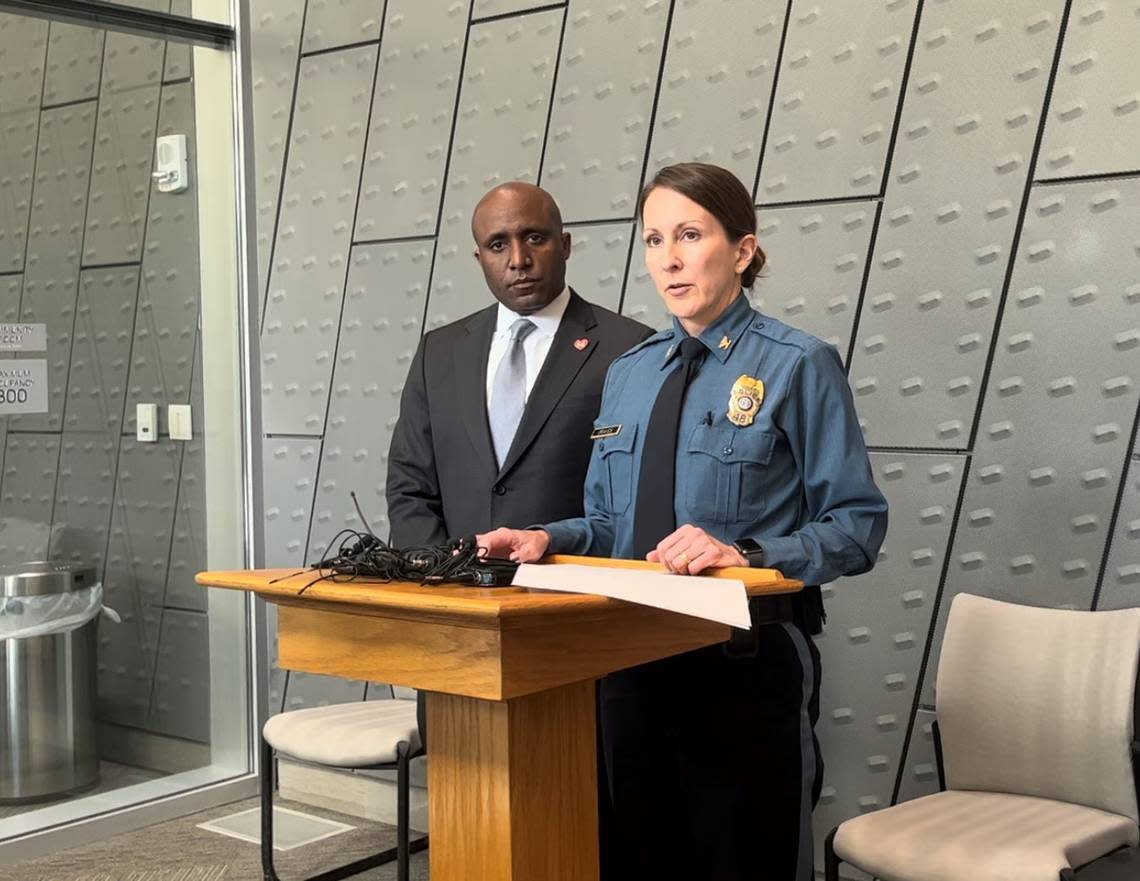KC mayor says police funding ballot question misled voters. High court hears arguments

- Oops!Something went wrong.Please try again later.
- Oops!Something went wrong.Please try again later.
An attorney for Kansas City Mayor Quinton Lucas argued in front of the Missouri Supreme Court on Wednesday that Missouri voters were misled last year when they approved an amendment to the state constitution forcing Kansas City to spend more on police.
The results of the vote, which 63.2% of voters approved in November, should be nullified and a new election should be held, said Jim Layton, Lucas’ attorney.
“This would have been defeated if the people of the state of Missouri would have known that there really was a cost,” said Layton, who was Missouri solicitor general under Democratic Attorneys General Jay Nixon and Chris Koster. “Because there is a nearly $40 million cost.”
The state’s highest court heard arguments Wednesday over a petition brought by Lucas alleging that Missouri officials used false financial estimates to get voters to approve the amendment, which mandates that Kansas City raise the allocation from its general revenue fund to the police department from 20% to 25%.
The crux of Wednesday’s arguments focused on the fiscal note that voters saw on the ballot last year, which said that “local governmental entities estimate no additional costs or savings related to this proposal.” Layton argued that this was false.
Jeff Johnson argued on behalf of Missouri Secretary of State Jay Ashcroft and Auditor Scott Fitzpatrick, the two Republican defendants in the case. Johnson said that the fiscal note was accurate because Kansas City had already historically funded its police with roughly 25% of its general revenue and the measure did not add additional costs.
Johnson said city officials testified that “it was common knowledge that they were funding the police department at more than 25%.”
The state court did not immediately rule on Lucas’ petition and said Wednesday it would take the matter under advisement.
The ongoing case illustrates the tumultuous relationship between Kansas City and Missouri officials over a push by Republicans in Jefferson City to assert more control over policing in the state’s two largest cities — Kansas City and St. Louis.
Kansas City, which is more diverse and progressive than the rest of the state, is the only city in Missouri that does not directly control its police force. The department is overseen by a five-member board of police commissioners. Four are appointed by the governor while Lucas fills the remaining spot.
Lucas was not in the courtroom for Wednesday’s arguments. He was in a City Council finance committee meeting and later meeting with first lady Jill Biden, who was visiting Kansas City on Wednesday, a spokesperson told The Star.
The mayor’s petition argues that before that November election, Kansas City officials had informed then-Auditor Nicole Galloway, a Democrat who did not run for re-election last year, and Ashcroft, who is running for governor in 2024, that the ballot measure would cost the city more than $38.7 million and force the city to cut spending on other services.
Despite repeated requests from the city, the ballot measure that was placed in front of voters — and overwhelmingly approved — stated that the city did not estimate any additional costs.
Ashcroft and Fitzpatrick, who was named as a defendant in the case after succeeding Galloway as auditor, argued in previous court filings that Lucas was using city resources to contest a policy he personally opposes and lacked legal standing to bring the challenge as a private Missouri voter.
Chuck Hatfield, a longtime Jefferson City attorney who worked in the Missouri Attorney General’s Office under Nixon, previously told The Star that the test for the courts will be whether the fiscal note summary was sufficient and fair.
While there have been challenges to fiscal note summaries in the past — and the courts have modified them — no Missouri election has been set aside over a ballot summary or fiscal note, Hatfield said.

